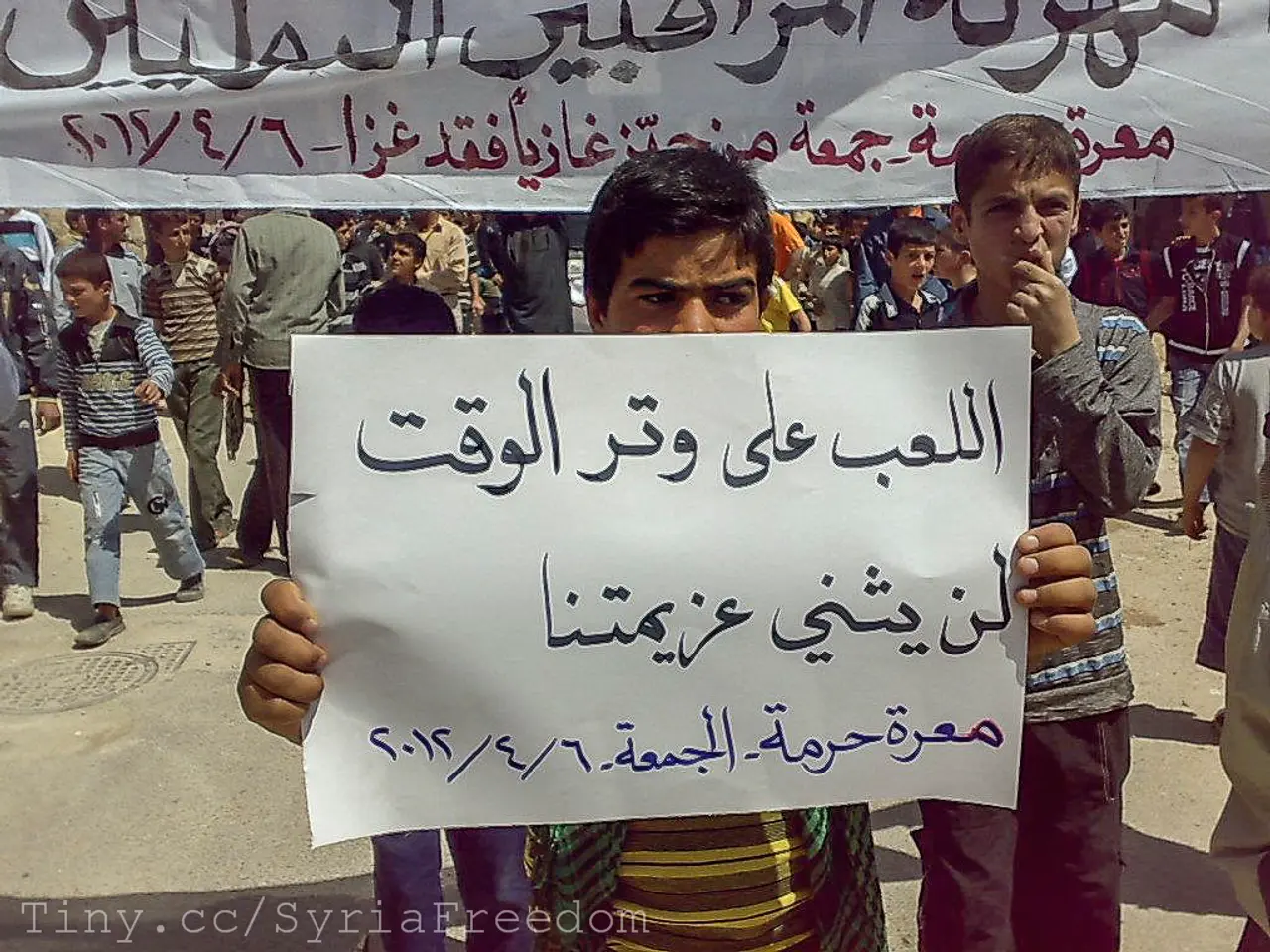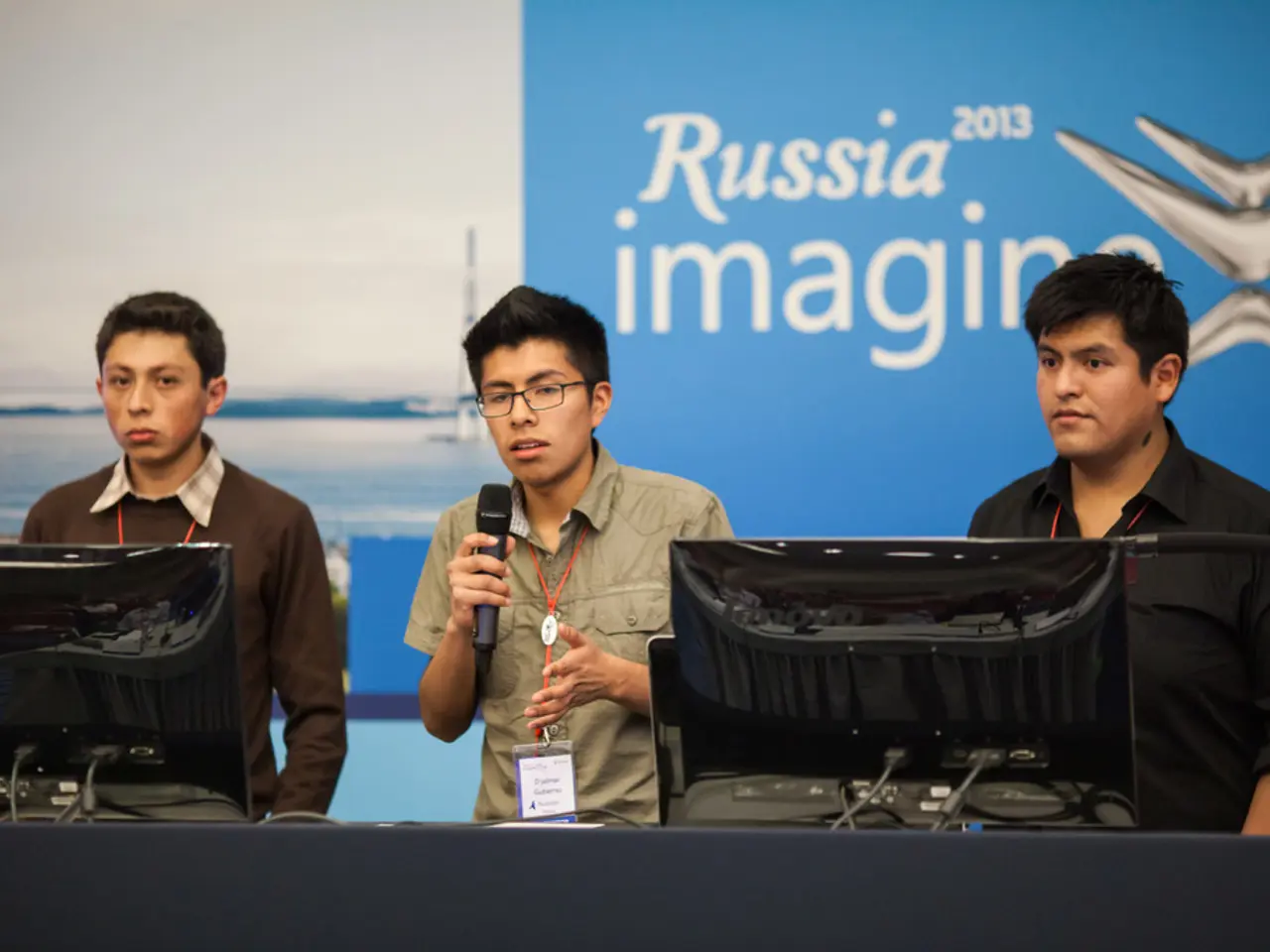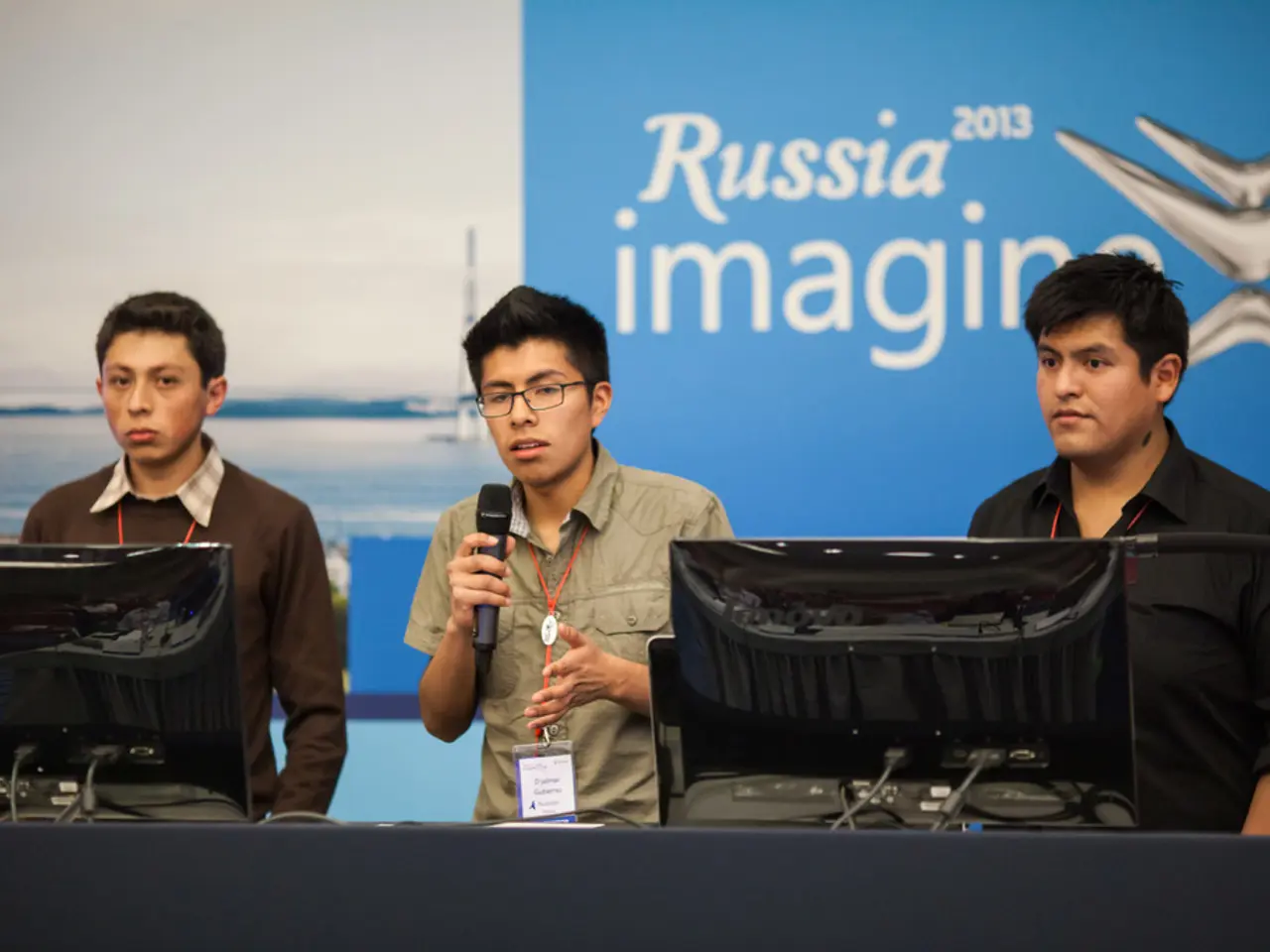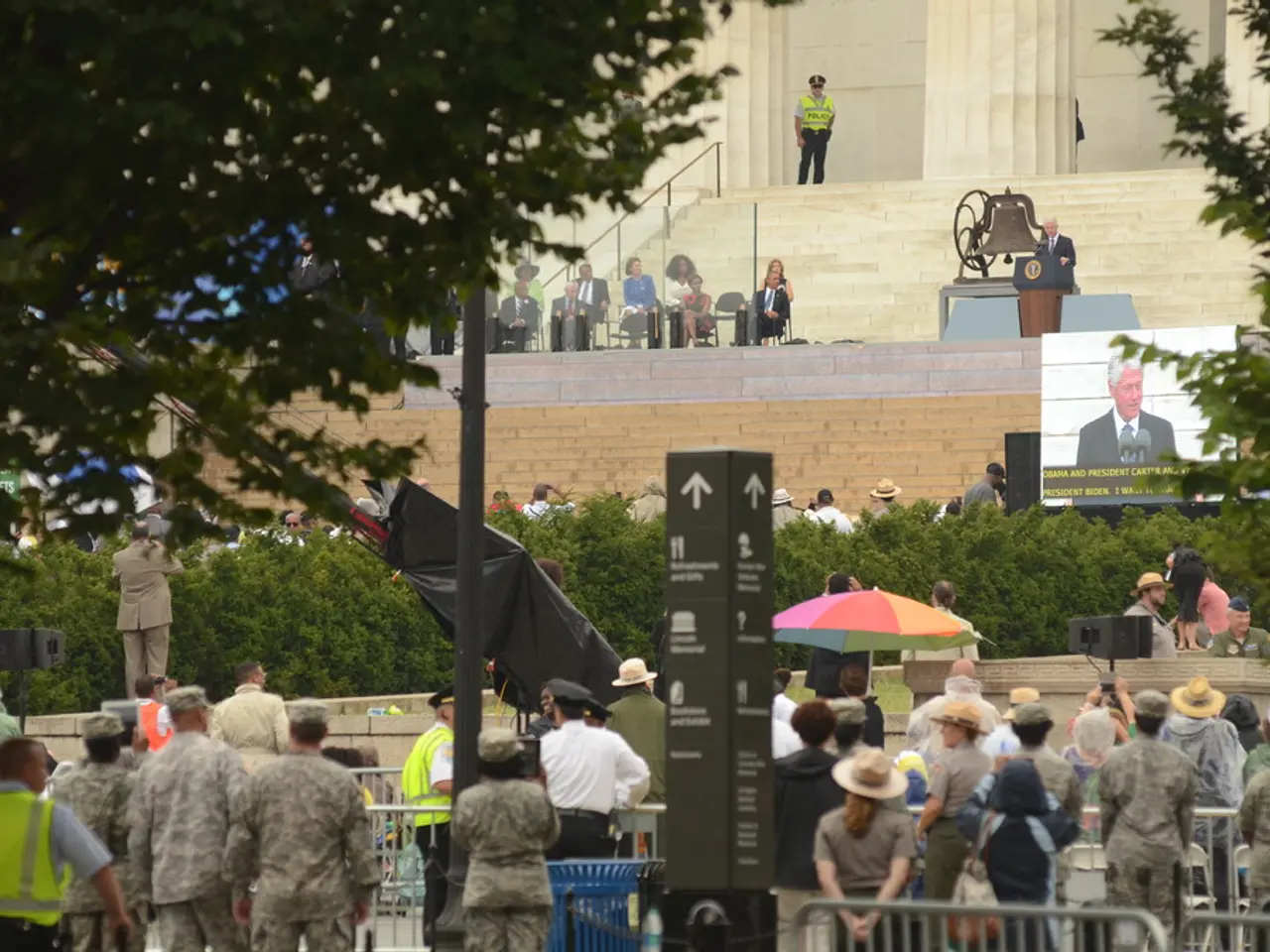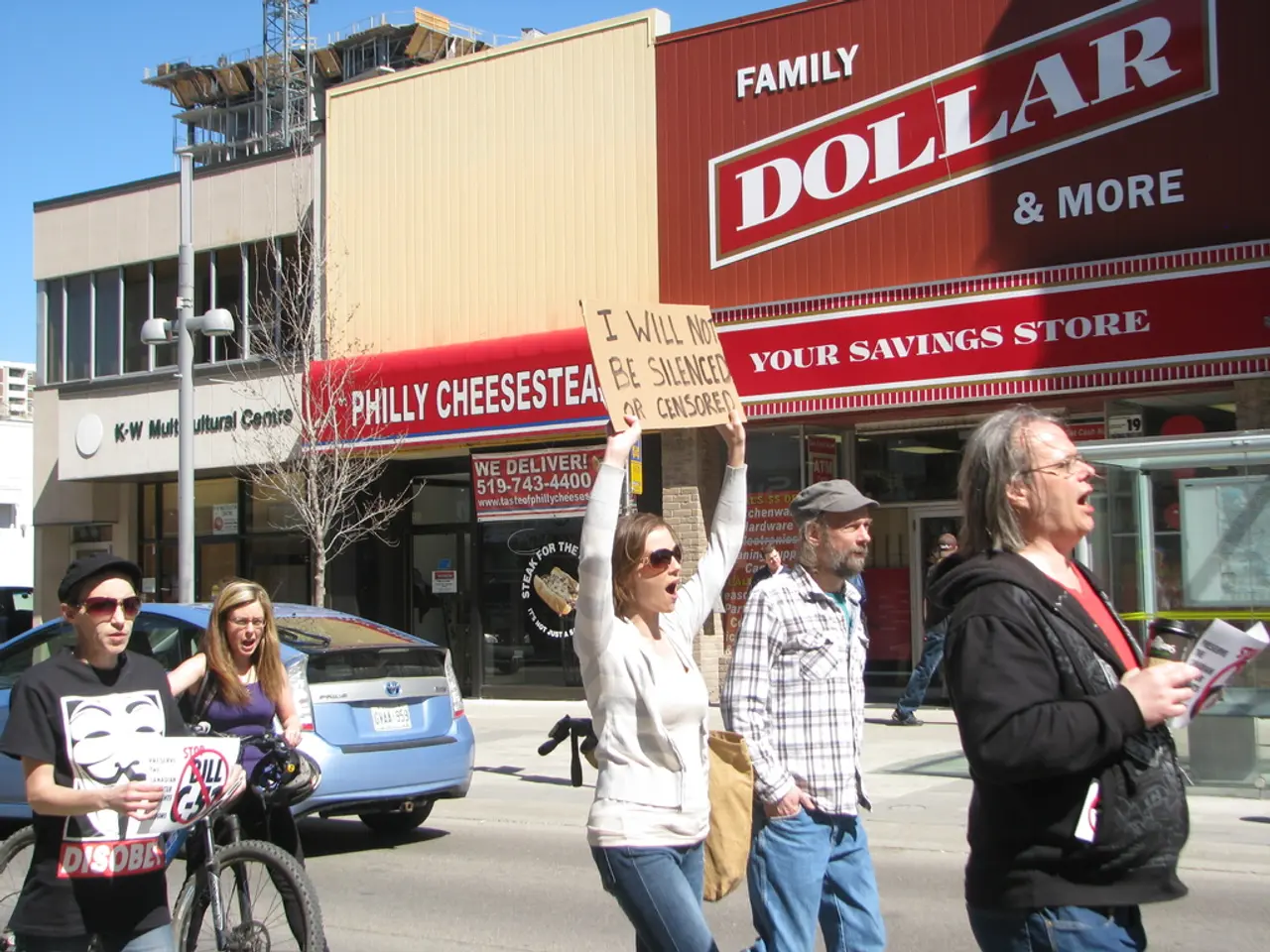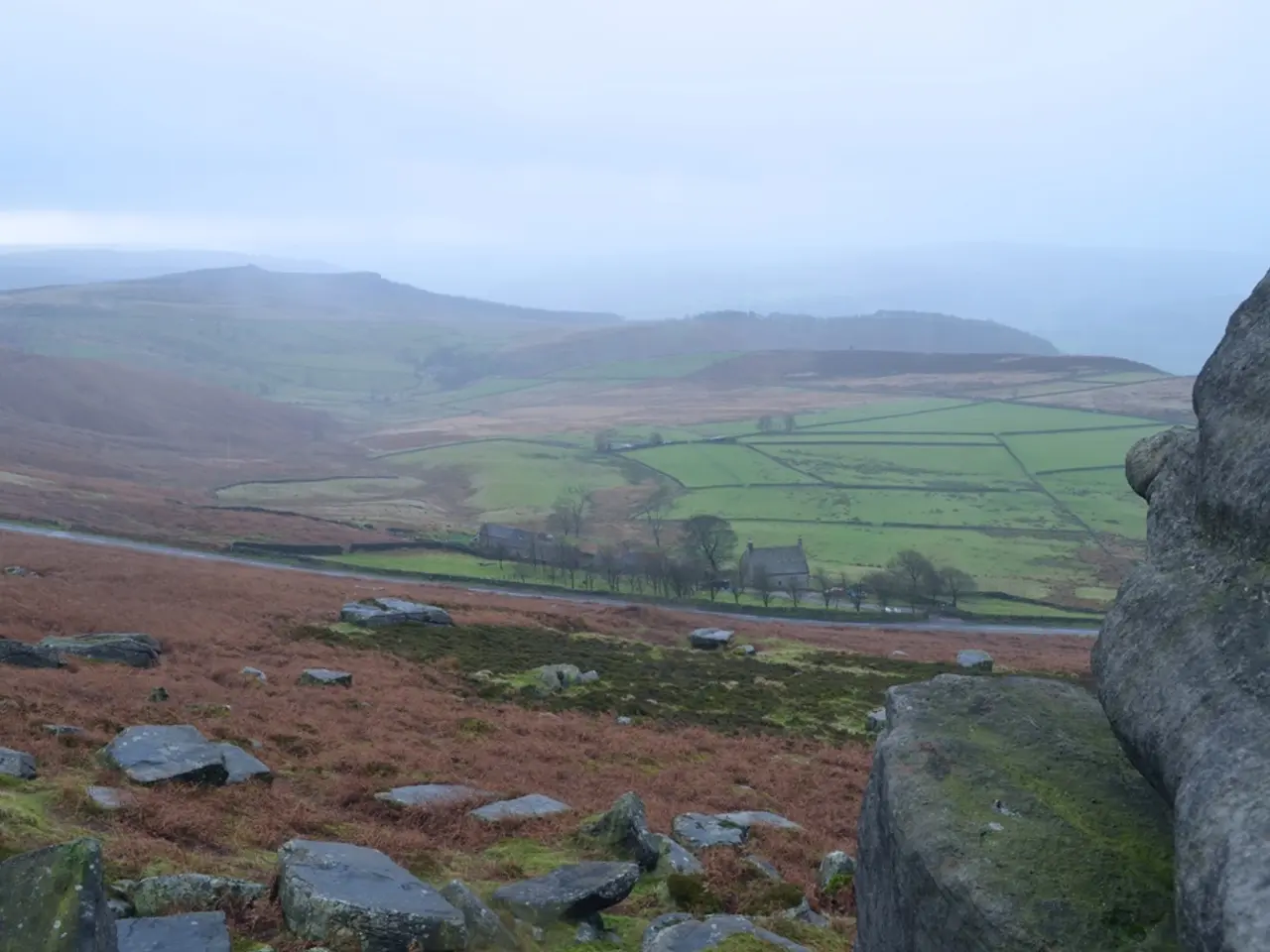Over 365 individuals detained in London for backing a banned Palestinian organization
In a move that has sparked significant debate, the UK government has proscribed Palestine Action as a terrorist group under the Terrorism Act of 2000. The decision, made in June, followed an action by activists who defaced two military aircraft at RAF Brize Norton with spray paint [1][2][4].
The proscription means that membership or support of Palestine Action is now a criminal offence, punishable by up to 14 years in prison [2]. The implications for protests supporting Palestine Action are far-reaching. Police have used the proscription to arrest and charge protestors expressing pro-Palestine sentiments, with at least 365 people being arrested in London for illegally demonstrating in support of the group [3].
Human rights organisations, including Amnesty International and Liberty, and the UN Human Rights Chief Volker Türk, have criticised the proscription, warning it represents an overly broad and potentially abusive use of counter-terrorism laws that risks suppressing free speech and legitimate protest [1][2][3][5].
Amnesty International has also reiterated their long-standing criticism of UK terrorism law, stating that it is excessively broad, vaguely worded, and a threat to freedom of expression [1]. The organisation expressed concern over the mass arrests, stating that the protesters were not inciting violence and that treating them as terrorists was disproportionate and absurd [1].
The UK's definition of terrorism under this law is broader than international standards, as it includes acts of property damage rather than restricting the term to acts intended to cause death or serious injury or to intimidate populations through violence [2]. Critics argue that designating Palestine Action as a terrorist group reflects a broader authoritarian trend in the UK, limiting dissent and political protest, especially relating to contentious moral and political issues such as the Israeli-Palestinian conflict [3][4].
The proscription also extends consequences beyond group members to anyone perceived as supporting them, raising concerns about the chilling effect on civil society, democratic rights to protest, and open political discourse [4][5]. The home secretary, Yvette Cooper, has defended the decision, citing national security and public safety as priorities [3].
The protests were organised by Defend Our Juries at Westminster's Parliament Square. During the demonstration, demonstrators remained silent from 1 pm to 2 pm, holding signs that read "I oppose genocide, I support Palestine Action" [1]. A supporter of the protest, Suzan Broom, clapped and cheered for those being arrested by police, expressing gratitude and fear [1].
Two women participating in the protest, one in her mid-70s, were arrested by police while being interviewed by the Guardian [1]. The arrested women did not incite violence or promote terrorism, but expressed opposition to the actions of the UK government and support for Palestine Action [1]. One of the arrested women stated that the vandalism of RAF aircraft was a "protest action, not at all terrorism" [1].
The home secretary, Yvette Cooper, thanked officers for their efforts and reaffirmed the government's decision to ban Palestine Action [3]. However, the police's inability to arrest a significant number of those supposedly committing "terrorism" offences was seen as a major embarrassment to Cooper [3].
In summary, Palestine Action’s proscription stems from its direct action tactics against military targets construed as terrorism under UK law, but this move has sparked serious debate and concern over civil liberties, the right to protest, and the potential misuse of anti-terrorism legislation to suppress political expression in the UK [1][2][3][4][5].
[1] The Guardian. (2023, July 1). Protesters arrested in London over Palestine Action demonstration. [online] Available at: https://www.theguardian.com/uk-news/2023/jul/01/protesters-arrested-in-london-over-palestine-action-demonstration
[2] BBC News. (2023, June 30). Palestine Action banned as a terrorist group in the UK. [online] Available at: https://www.bbc.co.uk/news/uk-65266433
[3] Sky News. (2023, July 1). Protesters arrested as Palestine Action demonstration takes place in London. [online] Available at: https://news.sky.com/story/protesters-arrested-as-palestine-action-demonstration-takes-place-in-london-12780044
[4] The Independent. (2023, July 1). Palestine Action banned: Protests against UK government's decision to outlaw group continue in London. [online] Available at: https://www.independent.co.uk/news/uk/home-news/palestine-action-banned-protests-london-b2253417.html
[5] The Telegraph. (2023, July 1). Protests against Palestine Action ban continue in London. [online] Available at: https://www.telegraph.co.uk/politics/2023/07/01/protests-against-palestine-action-ban-continue-london/
- The proscription of Palestine Action as a terrorist group under UK law has raised concerns in the realm of general-news, as it may potentially suppress free speech and legitimate protest, particularly relating to sensitive political issues such as the Israeli-Palestinian conflict.
- The implications of the proscription of Palestine Action stretch beyond crime-and-justice, impacting the political sphere and civil society, as anyone perceived as supporting the group may now face criminal charges.
